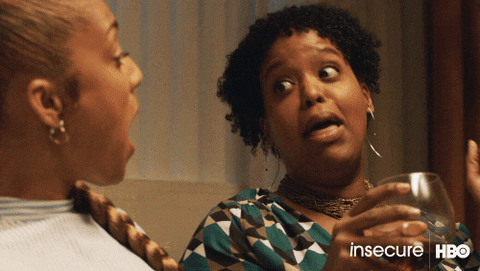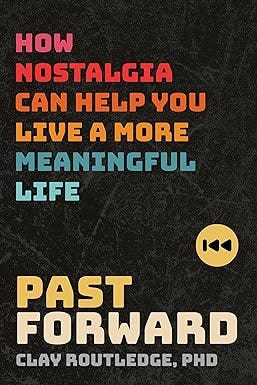We all have that song that takes us back…the one that our body knows by heart in both rhythm and sound. Today’s essay explores nostalgia as a coping skill. Also sharing some helpful resources … and finally some fun things I found on the internet this week that I think you will like, too. Mental health calendars anyone?
We long to have again the vanished past, in spite of all its pain. - Sophocles

The guitars strum, their voices harmonize, the words take me back to a simpler time. I’m Closer to Fine. I am cruising in the car with my sister…to soccer practice or ballet or school. The Indigo Girls were a soundtrack to my life in those days. The words I did not quite understand but as I listen to them now there is a visceral experience, a warming of my heart, a mind that goes to a particular felt sense of home.
We have all experienced nostalgia, that sentimental yearning for the past, at some point in our lives. We regale old memories with old friends, laughing and crying and horrified (in a fun way) about things we did and things that happened to us, choices that we made, people we dated. We watch old movies that take us back to the place where we first began to love them. We read books over and over to try and find the same feeling we had when we first read them - to take us back to the person we were when we first digested the plot line and characters.
I grew up in a small town with two high schools, one mall, no Starbucks or Target. We were insulated by the safety of our middle class white privilege - little to worry about beyond what parking lot we would visit or who was dating who. Life felt a lot simpler then, although I would rather not go back to that time, I do like to reminisce about how it felt to be young and free. Somehow, this nostalgia - a sentimental longing or wistful affection for the past - brings a sense of calm, a reminder when time felt carefree and endless, my body expands with hope.
Research on nostalgia has found that it has many positive health benefits. Nostalgia can foster social connectedness, positive affect, find meaning in life, and build self esteem. In my work with clients, they often find themselves pondering old times, old selves, old parts of them that remind them of who they want to get back to. Sometimes, through nostalgia, they can see how courageous and brave they once were and know that they can muster those feelings again. Often, nostalgia reminds them of how far they have come.
Music tends to encourage nostalgic moments as well as heard on
’ s recent episode on her Culture Study podcast about The Curious return of 2000s music. She interviews Nate Sloan, a musicologist. Nate mentions that there is a part of our brain that is developing at this time and seems to capture music’s impact and how it’s intrinsically linked to our developing self at this time. writes in a recent post how music held her hand through turbulent times and often takes her back to years of studded belts, messenger bags, and black t-shirts.Clay Routledge, PhD even wrote a whole book about Nostalgia and how it can help you build a meaningful life. Check out a whole YouTube Series that Clay created.
Nostalgia can remind us of who we used to be, things we used to enjoy, parts of us that we have lost. Maybe we have forgotten our love for a certain hobby, a certain genre of music, or a certain type of fashion. As we have grown and changed, coming into our own as adults, it is easy to toss away things we don’t think we need anymore. But what if nostalgia reconnects us with old parts of ourselves that can help us find joy and playfulness again?
I would LOVE for you to share what songs take you back? Where are you in these moments? Who are you with? What are you doing and what cringy outfit do you have on?
The Gottman Method is an evidenced based treatment model for couples that has been around since the ‘70’s. I receive their Marriage Minute via email every week and it offers small but effective ways to improve your relationship. One of my favorite ideas I have gotten from the Gottman treatment model is the idea of Turning Towards. The idea encourages partners to respond when their partner makes a comment (makes a bid for connection), asks a question, or attempts to make a physical connection. When we turn toward our partner, we respond to that bid and make a powerful connection and investment. It may be small such as a simple “ugh huh” or a follow up question. But what happens when we continually ignore our partner’s bid is that eventually they may stop making bids…which can obviously be a relationship barrier. I struggle with responding to my partner’s bid sometimes - distracted by my phone, my thoughts, some part of me that is anxious or angry. I don’t answer every time, because I am human, but the act of trying is everything and repair is always available as well. Check out this beautiful illustration of this concept and how to practice. (While the Gottman’s are a white cisgender hetero couple in their later years, I love that they are working to be inclusive of all types of partnerships in their work.)
I am thoroughly obsessed with a local artist here in Knoxville, Paris Woodhull. She created this perfect mental health calendar that I am proudly displaying in my office. I’ve got a shirt about feelings, growing, strawberry earrings, and fun stickers. I got my best friend some plant earrings because obviously she loves plants…I can’t wait to see what she creates next!
Regulating our nervous system (the system that manages communication in our body and with the outside world) is VITALLY important to our comfort and ability to tolerate stress, make good decisions, and just generally be able to engage in and enjoy life. I found a WONDERFUL instagram resource that shares understandable and digestible information about how we can better regulate (manage) and repair our response to stress and stressful events. (In the spirit of sharing evidence based information and accounts, I did notice that Jessica often cites her resources and where she is getting this information and has an advanced degree related to neurophysiology)
Here is a HOT TAKE: Goals are for losers, Systems are for Winners…after a google search I see that this thought has been around for a long time! Although the wording is kinda unhelpful, I do agree. I have been encouraging clients (and myself!) to focus more on action steps and putting systems in place to meet goals. We can talk all day about wanting to be a more kind friend - great goal, right? But how do you actually make that happen? You create reminders in your phone to check in, read a book about friendship/connection, call them immediately. and set a date for a get together. It’s about setting tangible steps in order to meet the goal…
Thank you for reading this far and supporting me, The Messy Therapist. You are loved.
**Disclaimer: The stuff you find on this website or in our online yoga and therapy antics is meant for laughs and general info only. It's not a stand-in for serious medical or therapeutic wisdom. Before you embark on any new yoga moves or delve into our therapeutic shenanigans, consult your healthcare pal. Participation is your choice, and we won't be held responsible for any sudden interpretive dance injuries.
Think of the links we share like those quirky friends—we're not vouching for their quirks. By using this place, you're saying, "I get it, it's all in good humor." If you don't agree, kindly exit stage left and seek advice from the serious folks. Laughter is the best medicine, but sometimes you need a prescription.” (-Thank you ChatGPT for this lovely disclaimer.)













-- Thought-provoking and inspiring essay. Xo.
I hear Little Richard’s Tutti Frutti and I’m back in my grandparents old suburban—safe and happy!
But I’m fascinated by nostalgia in general. One of the best books I read in college was The Way We Never Were by Stephanie Coontz.